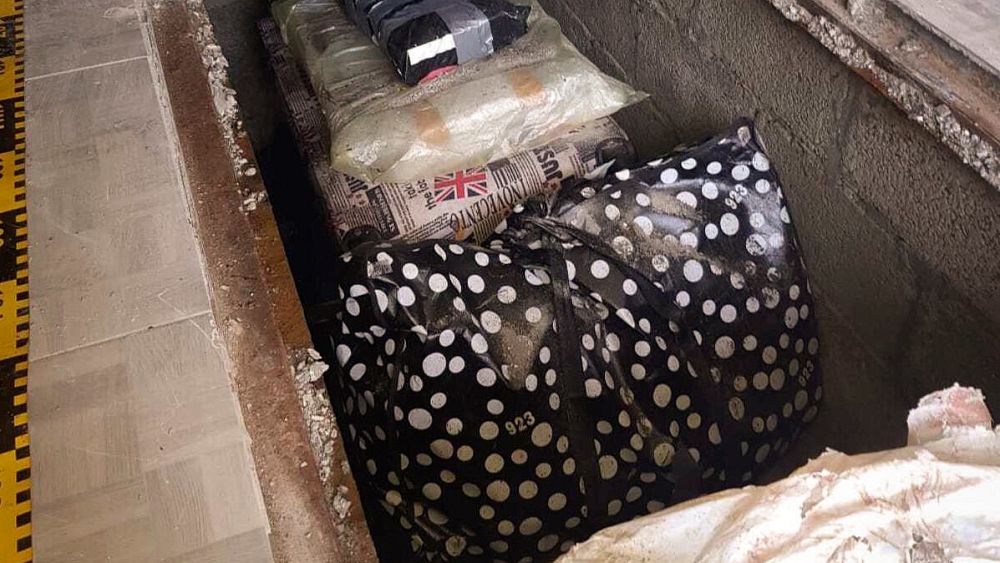It was just after dawn in northern Romania on 16 September when police raided a smart two-storey house on the outskirts of the village of Budesti.
In the garage, they used sledgehammers to break through the concrete floor. There, stacked neatly and wrapped in shopping bags, were £2.5 million worth of books, including priceless first editions of Galileo Galilei and Isaac Newton.
The books had disappeared three years earlier, stolen from a London postal warehouse by thieves who climbed a 15-metre wall, cut through glass skylights and abseiled in. Over four hours, they had located the books and got them out the way they came in.
It wasn’t the gang’s first warehouse burglary, and it wouldn’t be the last, but the heist made headlines in January 2017 – due to both the method and the prize. Typically, warehouse thefts target laptops or electronic equipment rather than rare books, and the fact that the gang was able to avoid high-tech motion censors invited comparisons to films like Mission Impossible.
“It’s not surprising,” Detective Inspector Andy Durham, at London’s Metropolitan Police, said of the public interest in this particularly warehouse burglary over the past three years. “`The things that stand out are the things that are a little bit different, that provides the interest.”
“When you actually look at some of the books, actually how they look visually, and then you read what they were about and when they were written. I mean, they’re fascinating,” he told Euronews.
For three years, Durham led the investigation into the book heist alongside the Romanian and Italian authorities. The first wave of arrests came in June 2019, and in January 2020 the ringleader of the gang was arrested by the Italian Carabinieri in Milan. The books were found on 16 September, and sentencing of the 12-strong gang began on Monday 28 September at Kingston Crown Court in London. Sentencing is expected to take place over four days.
Ordinarily, said Durham, he would have been present at the raid in Budesti, but travel restrictions due to the coronavirus made it impossible. Either way, the recovery of the books after so many months of work was extremely satisfying.
“It was extremely exciting. For all of us it was a pinch-yourself moment, and still is,” he said.
Clamparu
In Romania, the gang has a significant criminal pedigree. The man thought to be its ringleader, Gavril Popinciuc, 45, from Suceava, is the godson of Ion Clamparu, one the country’s most notorious criminals and currently serving a 30-year sentence for running a European prostitution ring that trafficked thousands of women and girls from Romania to Europe.
Romanian police believe that the gang was formed in 2016 in Romania and had carried out multiple robberies and break-ins to warehouses across the UK. Although they had used the same method – breaking in via the roof and abseiling in and out of the warehouse – they had tended to target electronic equipment, it is not clear why in January 2017 they stole rare books.
“We have not determined yet if this robbery was ordered by someone else. But based on evidence gathered so far – and the way they went about it – it’s pretty obvious that this wasn’t a random crime,” said Emil Tudor at the Criminal Investigation Division in Bucharest.
Or, indeed, what they planned to do with them. Police believe the books had been buried in the Budesti garage since soon after they were stolen. Unlike laptops or computer equipment, rare books are very difficult to sell on, especially ones stolen in such a high-profile heist.
“If they were stolen to order. If I ordered them, I would want them, or at least the majority of them. Possibly they were waiting for attention to die down,” he said.
“It would be very hard to sell them […] within the normal arena because the community is pretty small and they are all fully aware of these thefts. They would check to see whether or not items offered to them for sale would be on a list.”
Sadly, Durham said, although the 12 gang members have pled guilty and are due to be sentenced they have not revealed either their motives or their plans for the books.
“It might just well be that they are a good bunch of warehouse thieves and the order on that particular occasion was for these books rather than electronic equipment,” said Durham.
The fate of the books – and their value – was one of the primary reasons that the investigation took so long. Although investigators had begun to piece together the gang’s membership within a few months, they couldn’t risk moving in too early. Indeed, the gang carried out a number of other thefts between 2017 and 2019 even after police were aware of who they were.
‘Meticulously planned’
“There is intelligence within similar communities where ancient artefacts have been destroyed rather than allow them to be recovered and used as evidence against them,” Durham said.
The burglary on January 2017 was clearly meticulously planned, and computer records retrieved from gang members show that they spent time researching locations on Google Earth and Google Maps before they arrived in the UK. They also managed to get £2.5m worth of rare books out of the country and into a basement without getting caught.
But as for comparisons to Mission Impossible or the Oceans movie franchise – made in the media at the time of the heist and since – Durham is not so sure.
On the one hand, he acknowledged, the gang were good at what they did. On the other, knowing that motion sensors tend to be in the corners of a warehouse or that CCTV tends to be concentrated on the entrances was mostly common sense.
Meanwhile, on more than one occasion, he said, gang members left drinks cans on the rooves of warehouses they burgled, giving the police valuable DNA evidence.
“Oceans 11, like [the films] you’re brought up with, they wouldn’t have [done that] it would have been completely thought through,” he said.
“There was a lot of sensible preparing and planning going into these things, but perhaps not so much care taken when they were actually carrying them out.”









